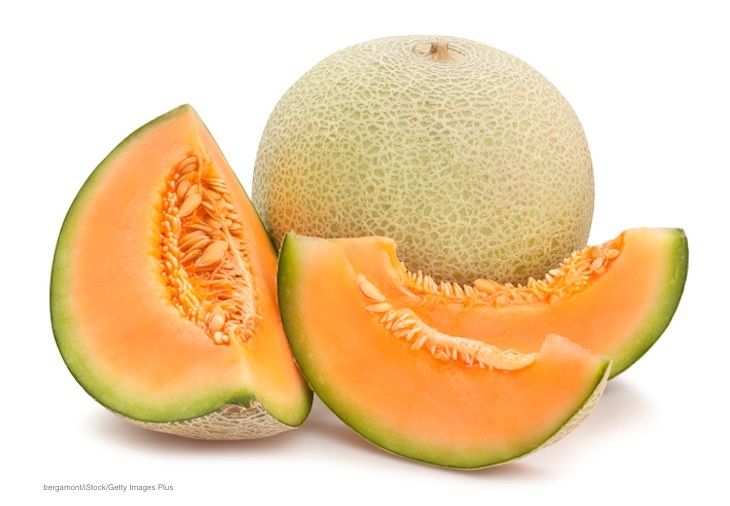The FDA has issued a report on the 2022 cantaloupe Salmonella outbreak that sickened at least 88 people and hospitalized 32. No specific brand was named, and no grower was named. The cantaloupe was grown in southwest Indiana in the summer of 2022. There is quite a long history of food poisoning outbreaks linked to cantaloupe.

The case count for that outbreak was: Georgia (1), Illinois (5), Indiana (17), Iowa (39), Kentucky (3), Michigan (3), Minnesota (4), Missouri (2), Ohio (3), South Carolina (1), and Wisconsin (10). The last illness onset date was September 13, 2022.
The FDA inspected three farms in Indiana, their common packinghouse, and public lands near the farms. Environmental samples positive for Salmonella were found at each location, but none of the isolates matched the outbreak strain through whole genome sequencing. The FDA found Salmonella on the farms and in post-harvest and off-farm environments. And the isolates in this cluster of illnesses were closely related to two FDA soil swab samples collected during a 2020 outbreak investigation in Indiana.
The FDA has released recommendations and requirements for growers of cantaloupe and similar produce. They should review current conditions and practices to see if they are adequate to prevent Salmonella contamination, assess risks posed by adjacent and nearby land use, especially if livestock, including, poultry are present, and research previous land use.
In addition, pre- and post-harvest sampling and testing of products can help farmers determine if more prevention measures are needed. Poultry manure, often used on cantaloupe fields, is a known reservoir for Salmonella species. It should be composted with time and temperature measurements to reduce the potential for pathogen contamination.
Growers should also inspect, maintain, and clean all food contact surfaces of equipment and tools. Root cause analysis may help growers understand how human pathogens in the agricultural environment contributes to contamination. Finally, traceability must be improved through increased digitization, interoperability, and standardization of traceability records. This is also important for shippers, manufacturers, and retailers.
The FDA is going to work with the Indiana State Department of Health to increase awareness among belong growers of pathogenic environmental strains to develop and promote risk reduction.




